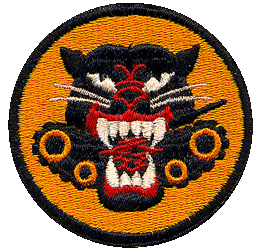 Donald H. Booth
Donald H. Booth
Biography: Donald H. Booth was born in 1923, in Winchendon, Massachusetts. We do not know the names of his parents but in 1930, he was living in Leominster, MA. By the 1940 census he and his two brothers, Richard and Paul, were living with their grandparents, Howard H. and Marie A. Steeves in Gorham, Maine who are also listed as the boy’s guardians.
Donald attended local schools, graduating from Gorham High School in 1942. His enlistment record indicates that Donald was working in some type of driving occupation, chauffer, bus, taxi, truck or tractor just prior to the war.
Service Time: Donald entered the service on October 12, 1942, at Portland, ME. After his initial training, he was assigned to Company B of the 629th Tank Destroyer battalion. During his training, he would receive additional instruction to be a radio technician as indicated by his future assignment.
The 629th trained at Camp Hood, Texas. and additionally at the Desert Training Center (Camp Ibis) near Indio, California and Camp Maxey, Texas before finally moving to Camp Kilmer, New Jersey, for final preparations before shipping out. The men were moved by truck to the New York port and sailed on a British transport ship on December 29, 1943.
The ship arrived at Liverpool, England on January 9, 1944. The men would begin seven months of training before being loaded on LSTs (Landing Ship, Tank) and landing at Omaha Beach on July 1st. The unit performed artillery missions in the Caumont sector and then joined the 30th Infantry Division in fighting at Mortain in early August. They then supported the reduction of the Falaise Pocket and participated in V Corps parade through Paris on August 29th, celebrating its liberation.
The unit history relates the following actions for the morning of September 20, 1944:
Technician 5th Grade Booth was sent up to 3rd platoon of Company B to remove a radio from one of the destroyers and take it to the rear, where he could repair it in a place of safety. After checking the radio he decided he could repair it without taking it to the rear. Heavy mortar and some small arms fire was directed at the tank destroyers during the time Booth was working on the radio. Disregarding this intense mortar fire he continued to work diligently on the radio in the destroyer until it was working properly. He realized the importance of maintaining radio communication between his platoon and the company command post and placed that job before his personal safety. Friendly tanks were maneuvering in the area surrounding the platoon of destroyers . The movement of those tanks caused the enemy to fire their mortars into the area. T/5 Booth completed his work at approximately 1315 (1:15 pm). As he was leaving the turret, one of our M-4 (Sherman) tanks that was operating to the east fired on the destroyer with both the 75mm and the caliber 30 machine guns. Booth was hit and fell to the ground mortally wounded. The incident was no doubt the result of mistaken identity even though other friendly tanks were scattered throughout that area.
Official records indicate that Donald was hit in the chest by a gunshot, probably from the tank’s 30 caliber gun. The place where he died is identified as Heckhuscheid, Germany. The following text, which was also included with the record of Booth’s death would most certainly have been used as the Citation for his award (posthumously) of the Bronze Star Medal:
Technician 5th Grade, Donald H. Booth displayed great courage and maintained complete calmness while repairing the radio under heavy enemy mortar fire. As a result of his courage and attention to duty, the radio was repaired in a minimum amount of time. T/5 Donald H. Booth was killed while performing this very important service under such trying conditions.
 Donald additionally received the Purple Heart medal (posthumously) and was temporarily buried on October 2, 1944, in the Henri-Chapelle #1 Cemetery, Plot B, Row 10, Grave 193.
Donald additionally received the Purple Heart medal (posthumously) and was temporarily buried on October 2, 1944, in the Henri-Chapelle #1 Cemetery, Plot B, Row 10, Grave 193.
In 1946, a number of correspondence were sent to Donald’s brother Paul to identify the desire of the family for Donald’s permanent burial location. Paul decided that Donald should remain overseas so his body was disinterred on October 15, 1947, and he was relocated to his final resting place in the Henri-Chapelle American Cemetery and Memorial in Henri-Chapelle, Arrondissement de Verviers, Liège, Belgium, Plot F, Row 9, Grave 72.
In addition to Donald, his brother also served in the military but in the Navy. He was honorably discharged in 1946.
I want to thank Donald for his ultimate sacrifice. I also want to thank Des Philippet for the use of the grave marker photo and Aimee Fogg of the Henri-Chappelle Cemetery for her assistance.
